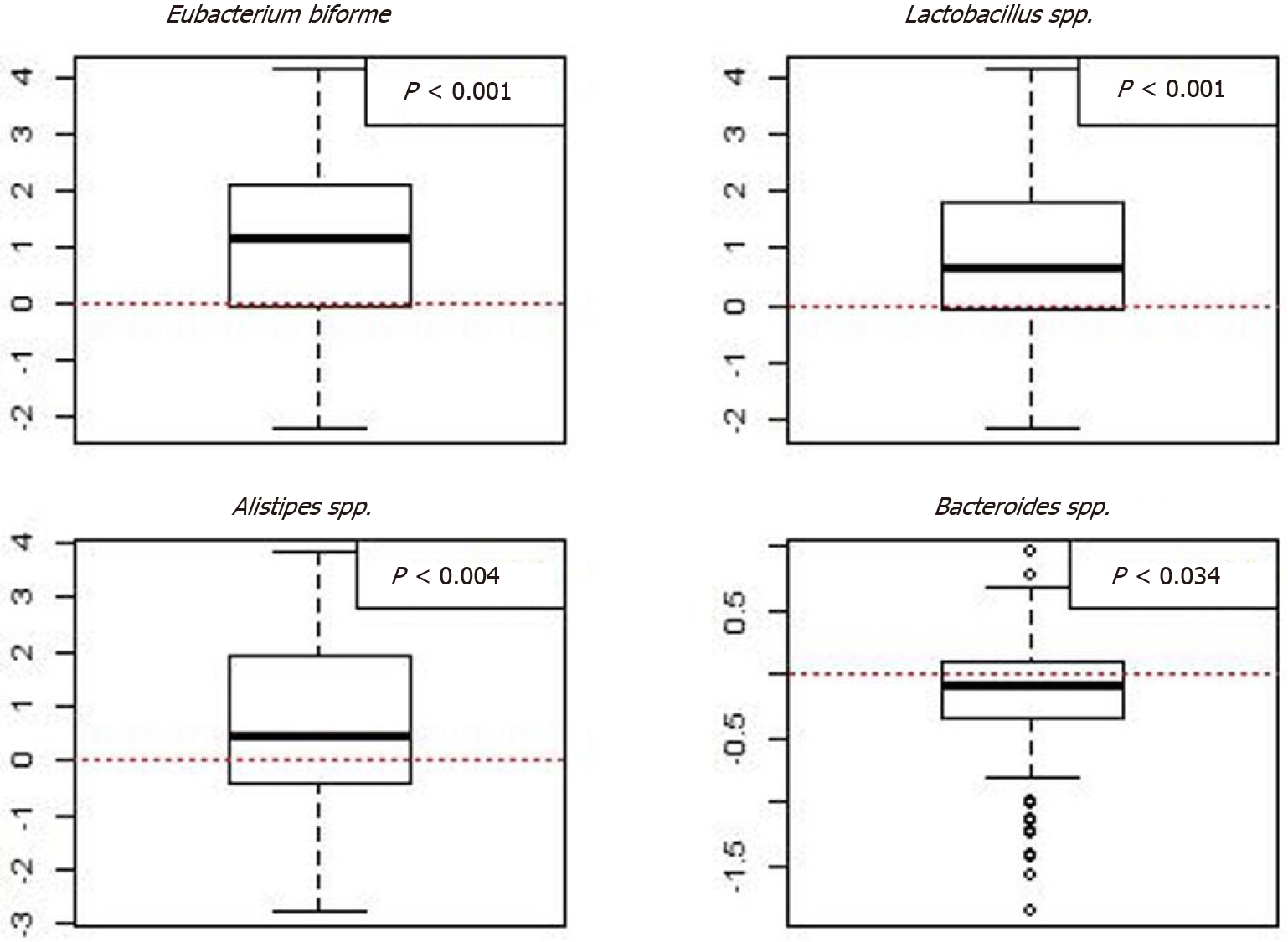Copyright
©The Author(s) 2021.
World J Gastroenterol. Jun 14, 2021; 27(22): 2921-2943
Published online Jun 14, 2021. doi: 10.3748/wjg.v27.i22.2921
Published online Jun 14, 2021. doi: 10.3748/wjg.v27.i22.2921
Figure 8 Box plots of the logarithm of the difference in signals between baseline and 1 mo after fecal microbiota transplantation for the responders in both the 30-g and 60-g fecal microbiota transplantation groups.
Red stippled line indicates 0, where no change occurred between before and after fecal microbiota transplantation (FMT). Signals after FMT in responders were higher for Eubacterium biforme, Lactobacillus spp., and Alistipes spp., and lower for Bacteroides spp. Citation: El-Salhy M, Hatlebakk JG, Gilja OH, Bråthen Kristoffersen A, Hausken T. Efficacy of faecal microbiota transplantation for patients with irritable bowel syndrome in a randomised, double-blind, placebo-controlled study. Gut 2020; 69: 859-867. Copyright @BMJ Publishing Group Ltd 2020. Published by BMJ Publishing Group Ltd[11].
- Citation: El-Salhy M, Patcharatrakul T, Gonlachanvit S. Fecal microbiota transplantation for irritable bowel syndrome: An intervention for the 21st century. World J Gastroenterol 2021; 27(22): 2921-2943
- URL: https://www.wjgnet.com/1007-9327/full/v27/i22/2921.htm
- DOI: https://dx.doi.org/10.3748/wjg.v27.i22.2921









